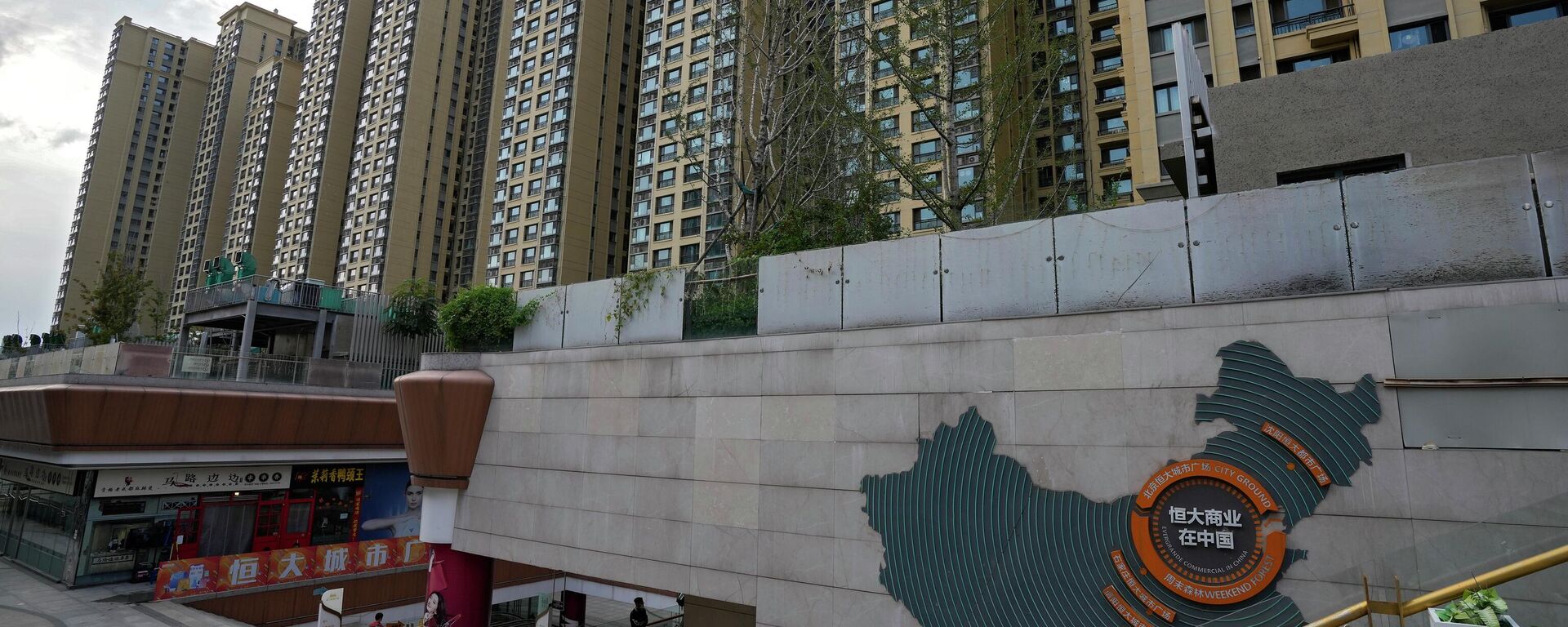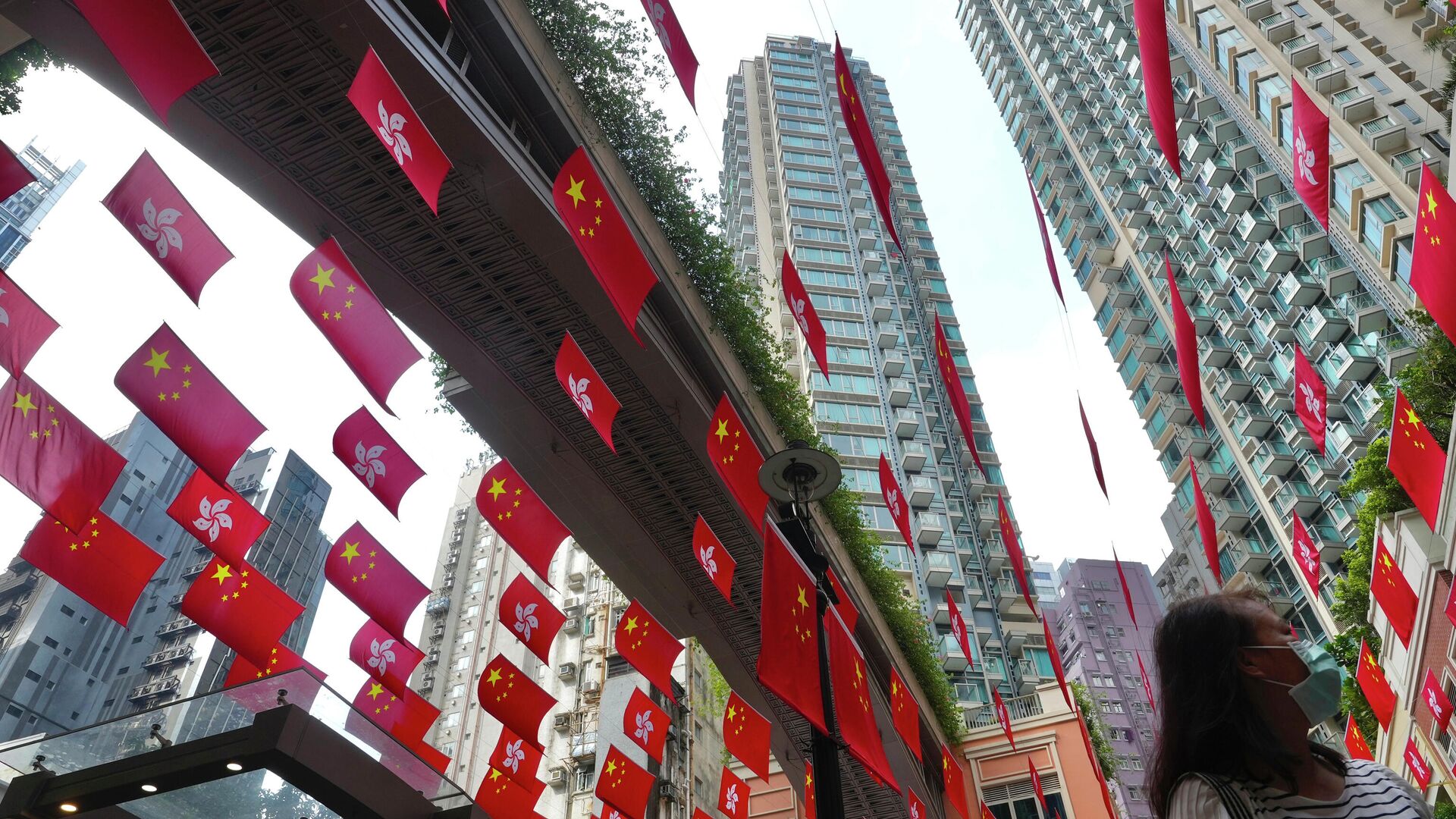https://sputnikglobe.com/20240319/hong-kong-legislative-council-oks-citys-own-national-security-bill---reports-1117429194.html
Hong Kong Legislative Council OKs City’s Own National Security Bill - Reports
Hong Kong Legislative Council OKs City’s Own National Security Bill - Reports
Sputnik International
BEIJING (Sputnik) - The Legislative Council of the Hong Kong Special Administrative Region voted on Tuesday to adopt the city's own national security bill, which adds punitive measures for a number of crimes that were missing in the 2020 legislation, the state-run China Central Television (CCTV) broadcaster reported.
2024-03-19T14:41+0000
2024-03-19T14:41+0000
2024-03-19T14:41+0000
asia
hong kong
china
beijing
cctv
https://cdn1.img.sputnikglobe.com/img/07e5/0c/1b/1091847574_0:168:3073:1896_1920x0_80_0_0_ffc613f3d4be34652467beaa0de0f7ce.jpg
The bill passed the third reading unanimously, with all 89 votes in favor. The updated legislation will take effect on March 23 once it is signed by Hong Kong Chief Executive John Lee, the South China Morning Post reported, citing the politician. The city's own bill will fill the gaps in Hong Kong's existing national security legislation, which was approved by Beijing in 2020, as the latter prescribed criminal penalties for only four types of activities: secession, subversion, terrorism and collusion with foreign countries or organizations, local authorities said. The bill, published in the Hong Kong government gazette, envisages a lifetime sentence as the toughest penalty for crimes such as treason, fomenting a coup, inciting the Chinese military to revolt, and activities undermining national security. Espionage is punishable by 20 years in prison, three to 10 years for stealing state secrets, and up to 14 years for participating in the activities of banned organizations, publicly demonstrating intent to commit treason, and covering up treason committed by third parties. Participation in foreign intelligence organizations and receiving profits from them can also be punished by up to 14 years in prison, the document read. The city attempted to introduce these laws in 2003, but failed due to widespread protests. In the summer of 2019, large-scale riots broke out in Hong Kong over the controversial extradition bill and lasted for over six months. In response, the Chinese authorities passed the Hong Kong national security law to prevent further unrest. The ban went into effect on June 30, 2020.
https://sputnikglobe.com/20240129/hong-kong-high-court-orders-liquidation-of-chinas-evergrande-developer--reports-1116462207.html
hong kong
china
beijing
Sputnik International
feedback@sputniknews.com
+74956456601
MIA „Rossiya Segodnya“
2024
Sputnik International
feedback@sputniknews.com
+74956456601
MIA „Rossiya Segodnya“
News
en_EN
Sputnik International
feedback@sputniknews.com
+74956456601
MIA „Rossiya Segodnya“
Sputnik International
feedback@sputniknews.com
+74956456601
MIA „Rossiya Segodnya“
hong kong vs china, is hong kong in china, hong kong status in china, china's one coutry two systems pronciple
hong kong vs china, is hong kong in china, hong kong status in china, china's one coutry two systems pronciple
Hong Kong Legislative Council OKs City’s Own National Security Bill - Reports
BEIJING (Sputnik) - The Legislative Council of the Hong Kong Special Administrative Region voted on Tuesday to adopt the city's own national security bill, which adds punitive measures for a number of crimes that were missing in the 2020 legislation, the state-run China Central Television (CCTV) broadcaster reported.
The bill passed the third reading unanimously, with all 89 votes in favor. The updated legislation will take effect on March 23 once it is signed by Hong Kong Chief Executive John Lee, the South China Morning Post reported, citing the politician.
The city's own bill will fill the gaps in
Hong Kong's existing national security legislation, which was approved by Beijing in 2020, as the latter prescribed criminal penalties for only four types of activities: secession, subversion, terrorism and collusion with foreign countries or organizations, local authorities said.
The updated law covers crimes such as state treason, revolt, incitement to rebellion and turmoil, theft of state secrets and espionage, destructive activities, endangering national security, external interference and organizations whose actions pose a threat to national security.
The bill, published in the
Hong Kong government gazette, envisages a lifetime sentence as the toughest penalty for crimes such as treason, fomenting a coup, inciting the Chinese military to revolt, and activities undermining national security.
Espionage is punishable by 20 years in prison, three to 10 years for stealing state secrets, and up to 14 years for participating in the activities of banned organizations, publicly demonstrating intent to commit treason, and covering up treason committed by third parties.
Participation in foreign intelligence organizations and receiving profits from them can also be punished by up to 14 years in prison, the document read.

29 January 2024, 09:04 GMT
The city attempted to introduce these laws in 2003, but failed due to widespread protests.
In the summer of 2019, large-scale riots broke out in Hong Kong over the controversial extradition bill and lasted for over six months. In response, the
Chinese authorities passed the Hong Kong national security law to prevent further unrest. The ban went into effect on June 30, 2020.
Hong Kong was returned to China by the United Kingdom in 1997 and has since been enjoying wider autonomy than the rest of the Chinese regions. China's central government adheres to the principle of "one country, two systems" in governing Hong Kong. According to a joint declaration by China and the UK, Hong Kong will retain broad autonomy until 2047.



